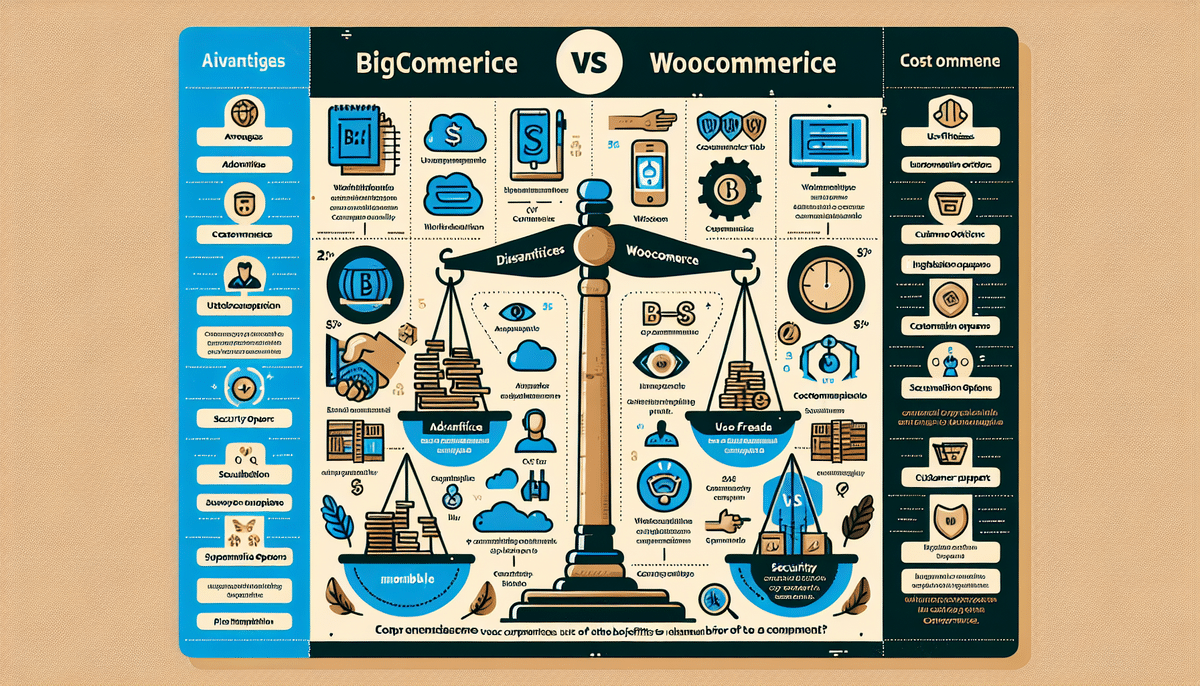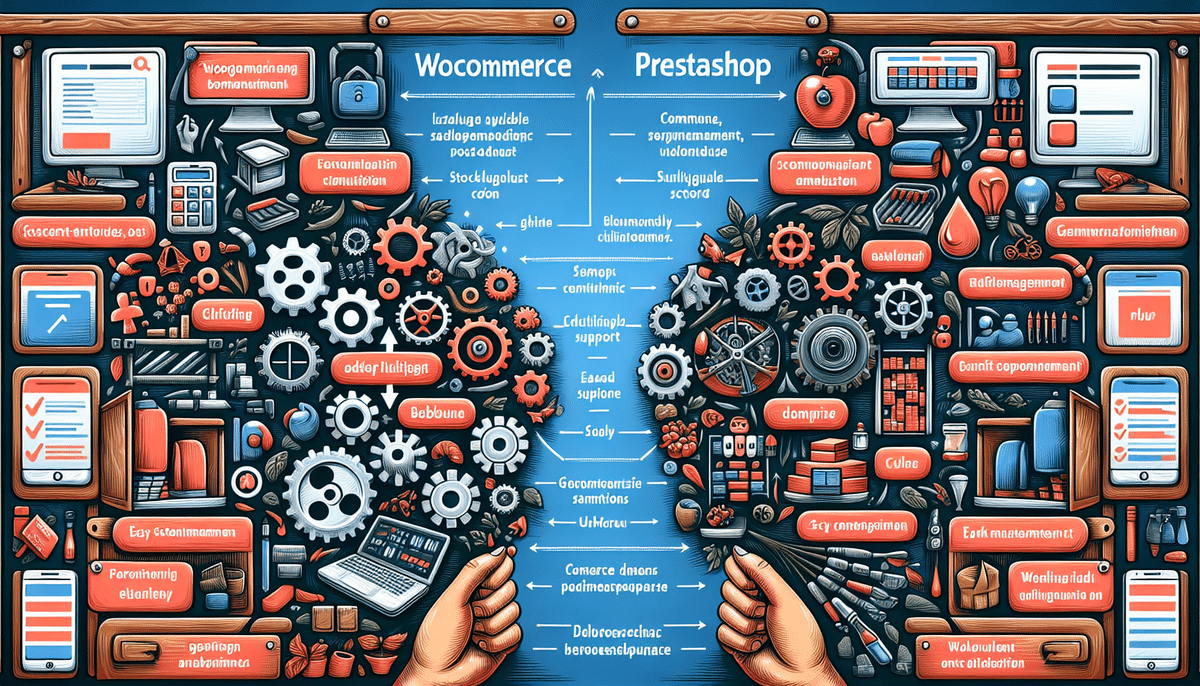WooCommerce vs Amazon: Choosing the Right E-commerce Platform for Your Business
When planning to start an online store, WooCommerce and Amazon frequently emerge as top choices. Both platforms offer robust tools for selling products online, but they cater to different business needs. This comprehensive comparison will help you determine which platform aligns best with your business objectives.
1. Introduction to WooCommerce and Amazon
WooCommerce is an open-source WordPress plugin designed for small to medium-sized businesses seeking extensive customization and control over their online stores. It offers a wide range of features and plugins, allowing businesses to tailor their websites to specific needs.
Conversely, Amazon is the world's largest online marketplace, connecting millions of sellers with a vast customer base. It provides a ready-made platform, handling many technical aspects of e-commerce, such as hosting, security, and payment processing.
Key Differences
- Control: WooCommerce grants full control over website design and functionality, whereas Amazon offers a standardized selling environment.
- Scalability: WooCommerce requires self-management for scaling, while Amazon's infrastructure supports businesses of all sizes effortlessly.
2. Pricing and Fees
Understanding the cost structures of both platforms is crucial for budgeting and financial planning.
WooCommerce Pricing
- Free to download and use.
- Additional costs include hosting, domain registration, SSL certificates, premium themes, and paid plugins.
- Payment gateways like PayPal and Stripe may charge transaction fees.
For example, web hosting can range from $5 to $25 per month depending on the provider and plan.
Amazon Fees
- Referral fees ranging from 6% to 45% based on product categories.
- Closing fees between $0.30 to $1.80 per item.
- Professional selling plans cost $39.99 per month.
These fees can significantly impact profitability, especially for low-margin products.
3. Features and Customization
The feature set and customization options determine how well a platform can adapt to your business needs.
WooCommerce Features
- Extensive library of plugins and extensions for added functionality.
- Customizable themes to match brand aesthetics.
- Built-in SEO tools for optimizing product listings.
WooCommerce's flexibility allows businesses to create unique shopping experiences tailored to their specific requirements.
Amazon Features
- Access to Amazon’s Fulfillment by Amazon (FBA) service for streamlined shipping and customer service.
- Amazon Prime integration, offering customers benefits like free two-day shipping.
- Robust advertising tools through Amazon Advertising.
While Amazon offers powerful features, customization is limited to what the platform allows.
4. Security and Payment Options
Ensuring secure transactions and offering diverse payment methods are essential for building customer trust.
WooCommerce Security
- Users manage their own security measures, including SSL certificates and security plugins.
- Offers flexibility to implement advanced security protocols as needed.
However, this requires a proactive approach to maintain robust security standards.
Amazon Security
- Handles all security aspects, ensuring secure transactions through Amazon’s trusted infrastructure.
- Amazon Pay offers seamless and secure payment options for customers.
Amazon’s established security framework reduces the burden on sellers but limits customization.
5. Shipping and Fulfillment
Efficient shipping and fulfillment processes are critical for customer satisfaction and business scalability.
WooCommerce Shipping
- Requires sellers to manage their own shipping processes and partner with shipping carriers.
- Offers flexibility to choose shipping methods and pricing strategies.
This allows for personalized shipping solutions but demands more management effort.
Amazon Fulfillment
- Fulfillment by Amazon (FBA) handles storage, packing, shipping, and customer service.
- Enables access to Amazon Prime customers with benefits like expedited shipping.
FBA simplifies the logistics process, allowing sellers to focus on other aspects of their business.
6. Marketing and SEO Benefits
Effective marketing and SEO strategies are vital for driving traffic and increasing sales.
WooCommerce SEO
- Offers customizable URLs, meta descriptions, and SEO plugins like Yoast SEO.
- Enables detailed content creation to attract and engage customers.
WooCommerce's SEO capabilities allow businesses to optimize their online presence comprehensively.
Amazon Marketing
- Provides Amazon Advertising for promoting products within the platform.
- Benefits from Amazon’s high domain authority, improving product visibility in search results.
While Amazon aids in product discoverability, SEO customization is limited to product listings.
7. Customer Support and Scalability
Reliable customer support and the ability to scale are important for long-term business success.
WooCommerce Support
- Offers support through community forums, extensive documentation, and professional services.
- Scalability depends on the hosting provider and the business’s ability to manage growth.
Amazon Support
- Provides support through Amazon Seller Central with predefined solutions for common issues.
- Scales effortlessly as Amazon’s infrastructure supports growing businesses without additional management.
Amazon simplifies scalability, allowing businesses to expand without worrying about technical constraints.
Final Thoughts
The choice between WooCommerce and Amazon hinges on your business’s specific needs and goals. If you prioritize customization, control, and building a unique brand identity, WooCommerce is the ideal choice. However, if you seek access to a vast customer base, streamlined logistics through FBA, and minimal technical management, Amazon may be more suitable.
Assess your business requirements, budget, and long-term objectives to make an informed decision that aligns with your e-commerce strategy.




















